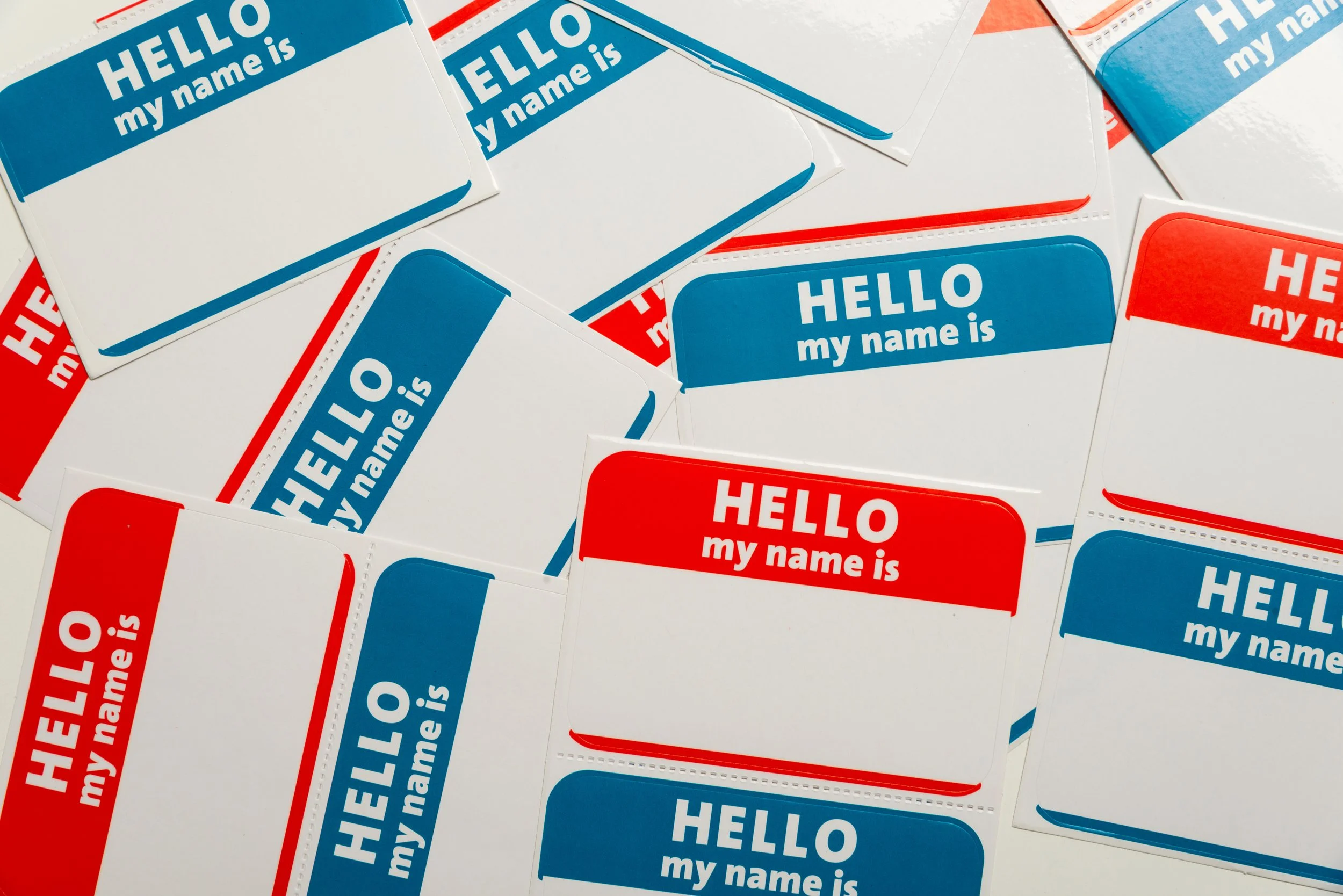I have a confession to make. I am terrible at learning people’s names. I’ve struggled with it ever since I was a child! I’d come home from school on the first day of the semester, smiling brightly about having met my new teacher, and my mom would ask, “What was her name?”
I’d freeze. “Uh…”
My mother would sigh, shaking her head and smiling with affectionate exasperation. “Oh, Dima.”
I would finally remember her name the final days of the semester! And you can imagine how excruciating history classes were for me. So many important figures—politicians, war heroes, inventors—and their names would all go in one ear and out the other. I wish I had an explanation, but the simple fact is that no matter how hard I try, I perpetually struggle to remember people’s names. I know faces, I know life details, I know aspects of their personality, but their names still escape me! So if you’ve ever wondered why I excitedly greeted you at an event but never referred to you by name—well, this would be the reason. haha
I recently gave a workshop about microaggressions and unconscious bias. One of the attendees was a German immigrant. When I asked if anyone had any questions or comments, he stood up and nearly burst into tears. He confessed that he was hurt because his team members did not say his name with the correct German way, i.e. with the true German pronunciation. It felt like they didn’t respect him, he said, or worse, that they simply didn’t care.
I bring up this incident to highlight two simultaneous truths:
1) This man’s feelings were entirely valid. I am no stranger to having my name mispronounced, and I understand that repeated mispronunciation—particularly from the same person or group of people—can begin to feel deliberate and disrespectful.
2) We must engage with situations such as these with grace. Not every mispronunciation is malicious or purposefully incorrect. Not every mispronunciation means our team members don’t respect us. Speaking broadly, there are often other behaviors that clue us in as to whether our coworkers are intentionally being rude when they mispronounce our names. Do they generally behave curtly around us? Do they go out of their way to avoid being near us? Do they refer to us snidely in conversations with others?
If someone mispronounces my name but has in no other way demonstrated ill will toward me, I believe the appropriate response is to give them grace. Correct them, politely request they address me appropriately next time, and move on to the next assignment. In the case of the German man, whose name was beautiful but indeed difficult to pronounce for non-native German speakers, I would advise that he keep the same advice in mind: give people grace. As long as people are trying, the best route of action is to bring them in, not push them away. If we assume everyone who slips up is deliberately failing in their inclusiveness, no progress will ever be made! Instead, we should offer others the same grace and forgiveness that we would want ourselves to receive when we make mistakes.
In conclusion: if I forget your name, I hope you’ll extend me a little grace. I would do the same for you!
Dima Ghawi is the founder of a global talent development company with a primary mission for advancing individuals in leadership. Through keynote speeches, training programs and executive coaching, Dima has empowered thousands of professionals across the globe to expand their leadership potential. In addition, she provides guidance to business executives to develop diversity, equity, and inclusion strategies and to implement a multi-year plan for advancing quality leaders from within the organization.
Reach her at DimaGhawi.com and BreakingVases.com.

